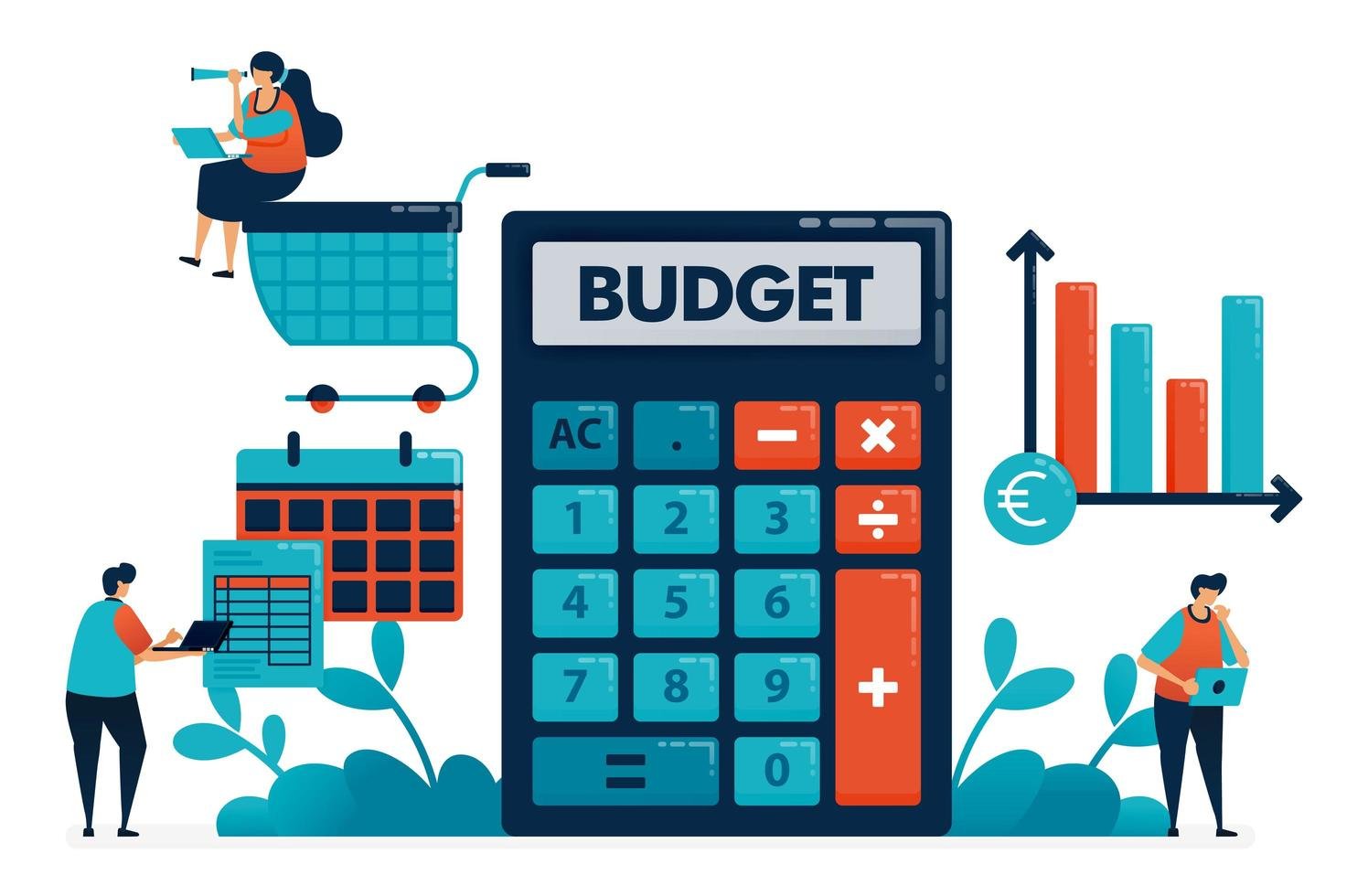Table of Contents
How to Calculate a Budget for a Research Proposal
When you are writing a research proposal, there may be a situation in which you need to know how to go about the budget for research proposal calculation. The strategy calling for the use of financial resources must not only be presented in a budget but also actually have to be convincing. More so, information on how to calculate a budget for a research proposal can either make or mar a project as it pertains to funding. Thus, in this article, we will explain how to identify your budget for a research proposal and what elements to consider when preparing it to not make some of the avoidable errors.

Therefore, it becomes rather unclear when it comes to budgeting for the given research proposal. Fortunately, the following steps have brought about a better understanding of the procedure. It is crucial to learn the technique of identifying the budget for a research proposal because the budget turns into the financial foundation of one’s project.
Here it comes as a useful tool to demonstrate to the funders how you will use resources to achieve your research goals. No matter, if you are currently searching for a grant, implementing a funding campaign for a private organization, or conducting an academic study, learning how to calculate a budget for a research proposal, makes you ready for those moments when you will be asked to respond to some of the financial queries.
Processes Leading to the Preparation of the Budget for a Research Proposal
Understand the Key Components
Every agreement requires some basic fundamentals, and all one needs to understand when beginning to learn how to calculate the budget for a research proposal includes. These elements can include:
Personnel Costs: Any wardrobe of any person and all food and accommodations throughout your project of any person.
Equipment and Supplies: Among the assets is equipment used in the course of your study, like laboratory equipment, computers, and other related equipment.
Travel and Accommodation: If the requirements involve traveling, make certain to include the cost of transportation, meals, and housing if they are incurred in the process.
Consultant Fees: Some might be one of those outsiders that you employ now and then for specialized work.
Overhead Costs: Domestic or incidental outlay such as administrative costs and claims from the institution or the organization apparatus.
Miscellaneous Expenses: Other costs that might be incurred are the license of certain software, charges for the publication, or for data management tools.
To get started, ask yourself:
This is what is central to my research and how I can estimate these costs? But this is where knowing how to calculate a budget for a research proposal becomes relevant. The ILO’s commitment in terms of statements of principles and policies in support of decent work recalls the paradox discussed above only to be followed by a negation of support for the worker’s rights.
Define the Research Scope
As you begin to prepare the budget for your research proposal, it is very essential to distinguish the goals of the research or what the research will include. The scope is a direct determinant of the total costs. For instance, if your proposed study involves moving from one community to another or if your study will involve spending several months in a hotel, then the expenses incurred on transport/hotel accommodation will be enormous. On the other hand, laboratory research could be described as having a high expense on equipment and a low transport cost.
Discuss the Budget Types
Once you have reached this stage where all these requirements are fully understood, this is the right time to segment the given general budget line into other finer lines. Here’s how you can do this:
Personnel: List each researcher or assistant and their position, hourly/salary rate, and estimated hours/months of work.
Equipment: Enumerate any required equipment in your project and then indicate the cost that was required to either purchase or rent one.
Travel: If your fieldwork is involved, try to quantify some of the travel you hope to incur, distance to be traveled, and time to be spent.
This is because there is always room for detail when it comes to partitioning the budget depending on the requirement; hence, there shall be no chances of forming any kind of distortion in the accounts. This is especially important when it comes to the definition of the activities to be included in the given line of work that will define the overall budget for the research proposal in front of the potential sponsors or other organizations.
Review Funding Guidelines
In this respect, structures regarding how the budget should be structured or allocated have been established by most funding agencies or institutions. Most of such guidelines have certain limits set for the amount that can be expended on certain categories. This handbook shows you how to calculate the budget for a research proposal, and observing these limitations is the way to have your proposal reviewed. To ensure that no problems arise, which could lead to lack of submission or late submission, the candidate should ensure that they always scrutinize the instructions given by the funder.
Justify Each Expense
One of the activities that is considered to be crucial in How to Calculate Budget for Research Proposal is understanding that every cost has to be recoverable. The sponsors believe that any cost incurred should promote the aim and objectives of the research. For example, when filing for a grant, for instance, for equipment, explain how the equipment is going to be used in your project and why the equipment is necessary. In the same way, personnel expenses tend to grow viral because people can always explain how many tasks everyone in the team is expected to perform.
The final step of the planning wheel is the last budget step and the check on all the steps taken.
When you are through classifying and explaining all the kinds of spending, it is that you should freeze your budget. However, when performing the calculations, ensure that you are very cautious a lot of times to avoid making mistakes. Just a note here: a well-prepared budget requires some work of a sportsman who needs to demonstrate to succeed, and, first and foremost, to be ready to pay attention to details.
Include an optional document,
Again, many funding agencies anticipate the preparation of an allocation of funds document, which is referred to as a budget justification. The next few pages give explanations of each cost and why they are necessary for the budget. Though it is not always possible to come up with such a reason, it is sometimes helpful because it makes your proposition stronger. Bringing it back to the level of approximately the research money available for any proposal figure while arguing that figure increases its odds of being approved.
Underestimating Costs:
One common mistake that learners make whenever they are learning how to calculate a budget for a research proposal is to underestimate the costs associated with it. At some point, the process of doing the research may turn out to be more expensive than was planned in the beginning. Furthermore, it is safer to be certain that all costs hit the capture, and it is the best strategy to implement.
Overinflating Costs:
However, you should be as detailed as possible; at the same time, you also should not complicate things and start adding artificial prices to your offer. The funding agencies will develop suspicion if costs are inflated while your proposal will not have the professional outlook.

Conclusions about How to Calculate a Budget for a Research Proposal
Whenever one is ready with a very well-defined and articulated, clear-cut budget, it reveals the level of concern that is being accorded to the research project and, just the same way, convinces the financiers that their money will be well utilized. It is very essential to know how to calculate a budget for a research proposal, keeping on top so that one has high chances of getting the right amount of funding that will boost research goals and objectives.
FAQs about How to Calculate a Budget for a Research Proposal
Projects’ personnel salaries: How do I compute them?
When doing this in regard to the salary of project personnel, one should find the mean wage rate in the region or discipline of the study of the post. You may also look up institutional practices or use the rates from salary resources to ensure that the rates are credible and market competitive.
Is it possible to consider contingency funds useful for budgeting?
Yes, they should be included, and the best ranges are contingency funds such as 5-10% of the total budget for emergencies. But when it comes to a breakdown of your budget and if you are planning for some amount for such a thing, make sure to explain why you require such a fund.










